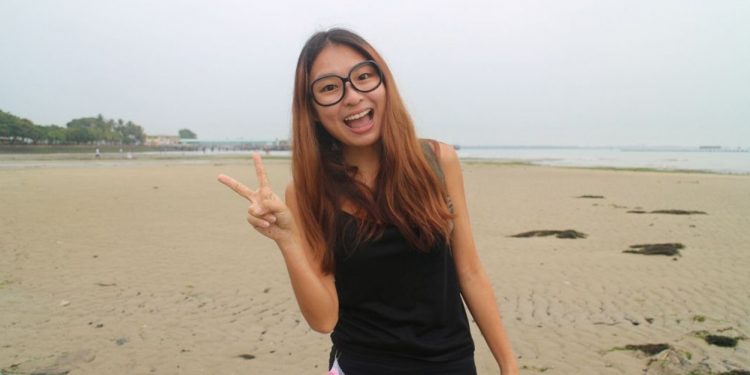The simple gift of a mini encyclopedia from her mother when she was seven was what sparked Kong Man Jing’s deep passion for science and wildlife. “I just started reading [it], and it would just tell you all the wonders of the world,” she says.
This soon snowballed into a fascination with biology, as she found herself being more conscious of the animals that she encountered in her daily life.
“There was one time I read [that] you cannot put different fish together because some are more aggressive. When we kept fish, I was telling my dad, ‘No, you cannot put the angry tiger barb fish with the other fish!’,” she recalls.
Subsequently, she found herself enthralled by the vast variety of wildlife during a school trip to St John’s Island in Singapore, when she was in junior college.
“It was a three-day, two-night camp on St. John’s Island. We explored nature, and there were intertidal [walks], night walks, forest terrestrial walks. I got really fascinated by it. I was like, ‘Wow, there’s so many animals around here in Singapore that I didn’t even know [about]’,” she recalls. “That’s when I fell in love with nature and wildlife.”
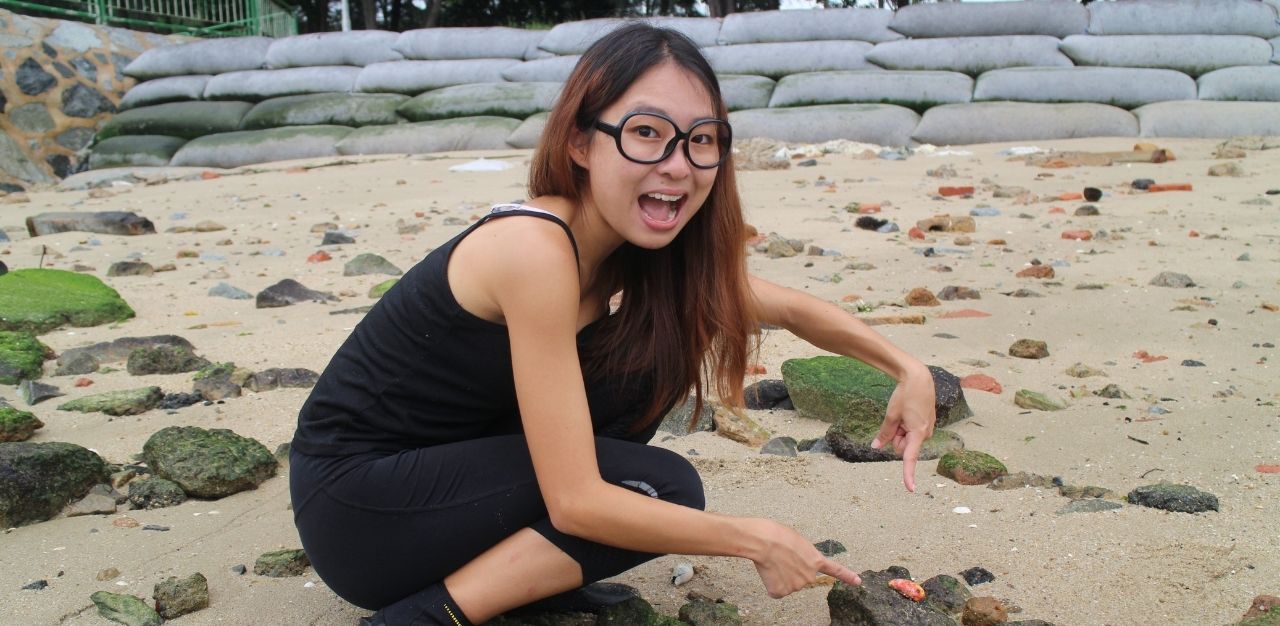
While she holds a full-time job as a private tuition teacher, Ms Kong, who prefers to be called ‘Biogirl MJ’, explores her passion for science through her work as a host with Just Keep Thinking, a science channel she co-founded with her partner Raye after a trip to Cebu in 2017.
“We were waiting for the sampan to go out for a snorkeling trip. There were a lot of dead coral pieces around. I randomly picked one up and started blabbering to [him],” she recalls.
“We were on a tuk-tuk back. I was just sitting there sipping on my coconut, and he was very quiet. I was like, ‘Did I do something wrong? Why are you quiet?’ And then he [said] ‘I got an idea.’
The incident was what inspired Raye to come up with the idea of starting a science channel, which Biogirl MJ readily agreed to. “I didn’t really think much about it, because it sounds fun. And it seemed like a nice side hustle to do, since I enjoy sharing a lot about nature as well,” she says.
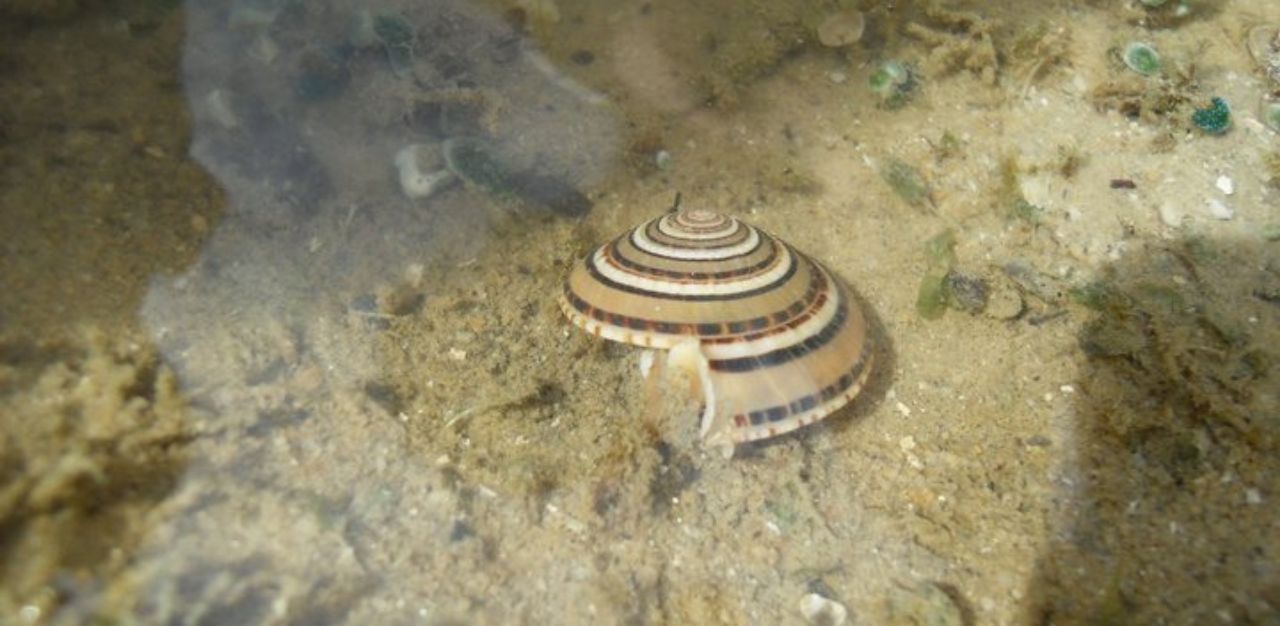
After six months of planning and filming, the duo launched their first video to warm response, prompting them to continue their efforts; the rest, as they say, is history.
A love for nature and respect and empathy for animals are some of the qualities that underscore her work with the channel, which she believes is integral in addressing environmental issues such as pollution and climate change.
“It’s very hard to get people to care about it, and to really commit to make a difference, if they don’t really love what these issues are impacting, which I guess is mainly our weather, livelihoods, [and] the animals,” she opines. “It will eventually tumble back to affect humans on a broader scale.”
The channel has since found success for its work on a variety of issues, from wildlife explorations to pandemic-related infographics, with one post explaining the types of face masks garnering 140,000 shares. Biogirl MJ shares that the decision to produce content pertaining to Covid-19 stemmed from a desire to stop the spread of misinformation.
“It makes us really happy because we are doing something for society and the community as a whole. It’s important that everyone knows the correct information about Covid-19, that everyone gets vaccinated. That was one of our major milestones,” she shares.
TheHomeGround Asia caught up with Biogirl MJ over an intertidal exploration at Changi Beach Park in eastern Singapore, to find out more about her experiences as a host and her passion for education and the environment.
Biogirl MJ: We didn’t plan [or] expect it to really go big. Or like throw our eggs into this channel hoping it will make it big. It is a passion, a side hustle, which I guess is the case for most people as well. It started as a side hustle, and took off quite quickly. That’s when we realised, oh, this has potential. Like, it could really get big and we could do something with this. Hopefully, we can transition into doing this full time.
TheHomeGround Asia: Could you tell us more about your educational experiences? Did you pursue science?
MJ: I [studied] triple science [in secondary school]. That’s when I decided I want to do environmental biology in university. Yeah. At that point in time, only NUS (National University of Singapore) had [a course for this].
I got my Bachelor’s degree from NUS Life Sciences, with a specialization in environmental biology. Throughout my whole uni life, you know, we get to have a lot of experiences. We got to go to areas that are restricted to the public, but [are open] for students. That’s where I clocked my experience.
After that, I dabbled in nature education. It was my dream to become a teacher also, but dreams change as you grow up, so… I wasn’t much into the scientist and researching aspect. Yeah. So I actually did like, part time educational facilitation with the zoo, talking about the animals there. I did guiding at the Lee Kong Chian Natural History Museum when it first opened as well. After university, I also worked for a short time in NParks. So I actually jumped around a lot of areas to figure out and experience [what] their way of education is like in [different] organisations.
THG: Is your work with Just Keep Thinking what you envisioned you would do, growing up?
MJ: For a short moment. But we always have different goals and dreams as we grow up. I wanted to be a teacher, but it kind of shifted. In university, there was a moment that I [thought] I could [be] a host of a channel or show. At that point it was a show, because documentaries were a thing. I didn’t really set my heart and soul fully into it [then], just kind of go along and just keep the passion going and see where it brings me to. So this was a nice surprise. And I’m enjoying every minute of it.
THG: How does your role as an educator influence your work with Just Keep Thinking?
MJ: It’s probably [influenced] the way I explain things on camera. I realise a lot of people tend to explain things really deeply. You don’t really know that it’s too deep for mainstream audiences, because you’ll be surrounded by the same people. So you tend to go really, really informative, and babble on. It’s interesting to you, but may not be interesting to the audience. My educator role has taught me [that] sometimes we have to mince our information and just pick out the fun facts. It’s not necessary to say all the points. I teach primary school kids, and their attention [span] is so short, but you have to get the concepts in. That’s when I realized I have to bring my energy out, make the story interesting, use a lot of anecdotes, keep the information simple but yet in a way that they can understand. That skill has actually translated into how I host and also how we do our videos.
We make sure that our information is easily digestible, not boring in the eyes of our mainstream audience, for kids also. Which I think we’ve done well. I’m not that cheem, but I write a script and I present it, Raye will be like, nah, that’s too deep for anyone to know. In the eyes of other people, it actually seems very different. I guess it happens to all professionals… When you’re around the same people you don’t know what is good. You have to ask [for a] second opinion, [like] when girls go try dresses, [they] will bring girlfriends along to have a second opinion. It works the same way here.
THG: What do you enjoy the most about your role as an educator?
MJ: When I was young, I really liked teaching. As I grew up my goals kind of changed along the way. But I realised I always come back to teaching, because it’s really fun and fulfilling when you get to see students actually understand what you’re saying or enjoying your lessons. They actually enjoy learning.
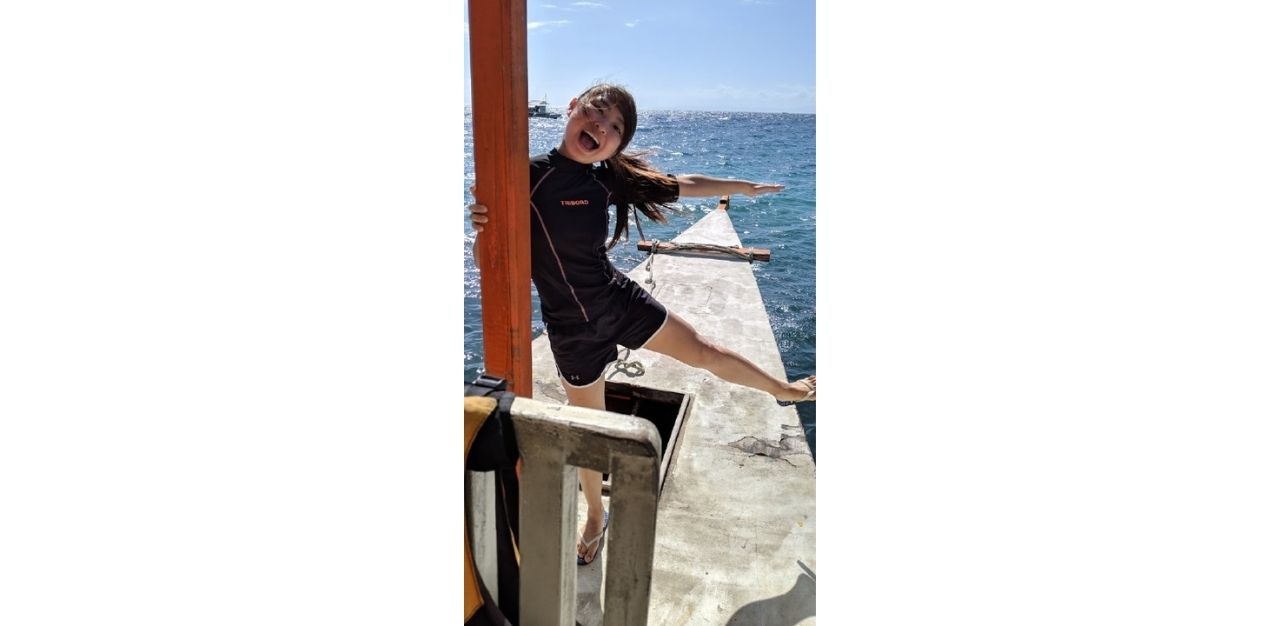
So I see it as a challenge whenever they seem to get bored. How can I make it interesting? How can we make it fun for them to understand? Yeah, I think it’s important for the younger generations. If you want to make a difference in the younger generation, to learn about important issues on Earth and get them to care about these, [you] cannot be like, ‘Why aren’t they interested?’ We really have to find a way to get them interested. Yeah. That applies to my role as a science teacher, [and] to Just Keep Thinking as a whole.
We reach out to children and adults, and people who use social media a lot, which is [many] of us. So you’re thinking about how we [can] impact these people, help get them interested in things they are not interested in, in the first place. That requires a lot of thinking, and a lot of creativity. How do you grab their attention? It’s very different from [when] you are really interested. They will learn it themselves. How about people who don’t care, who are not interested. Things such as nature, science, are everywhere around us, [from] things [in] nature to [things on [a] broader scale, like climate change issues and pollution. How can we get them to care about it and learn about it more? I guess that’s why I enjoy my role as an educator. It can actually spark something inside people who watch our content or sit in my class.
THG: Are your students aware of your growing fame as the host and co-founder of Just Keep Thinking? What are their responses when they find out?
MJ: I don’t let them know until they graduate, when they are in primary six.
They were okay, like ‘Wow, cool,’ about it. I guess they are more into TikTok right now and don’t know about it, but after they know, they tell their parents. It’s really cool because the parents are very supportive. One of my student’s parents became a Patreon, [which involves] commiting a few dollars every month to a creator to support [their] work. I was really touched when you know a parent of my student actually did that. It was really heartwarming to see her being so supportive.
THG: I understand that the other co-founder of Just Keep Thinking, Raye, is also your partner. How has working together on Just Keep Thinking changed your relationship with him?
MJ: There’s good and bad. Working with your partner brings more factors into your relationship. When you don’t agree on things, in terms of the business [or] creativity, which happens very often, it will spill over to the relationship as well. Like [if] we quarrel in the morning, it might not get resolved until the end of the day.
But the good thing about it is when [we] overcome it and resolve our differences, our relationship will become stronger. You get a sense of what marriage is like, because marriage is all about hard work and trying. In a very practical sense, it’s not [about how] love and being passionate can resolve everything. There’s a lot of things that you need to figure out. If we can figure out as business partners then I’m not worried about it at all. I know that we can resolve our differences. We can talk things out as adults, resolve it practically and move on with our lives. There’s good and bad, the bad usually comes first, but once you overcome the bad, I can see only a stronger future coming.
THG: What do you hope to achieve with Just Keep Thinking?
MJ: We started off just as a channel to hopefully spark the interest in nature, wildlife, and in science as a whole, in people, whether they are young or old. I think we are doing all right so far. And as our following gets bigger, that’s where I realised we can address more important issues, such as when we tried to spread correct Covid-19 information to encourage people to vaccinate, and when we bring people around to show them wildlife, and [incidents] like the recent marine wildlife pickings, when we get to address that, it was very well received. That’s when I realised we have this chance to really make an impact, to address important issues that should be addressed in our society.
So that’s what I hope to do in the future, to address more important issues. And to broaden the perspective of people as well. To show that we can always discuss things in a more sensible and constructive manner. Hopefully, this will just help society as a whole.
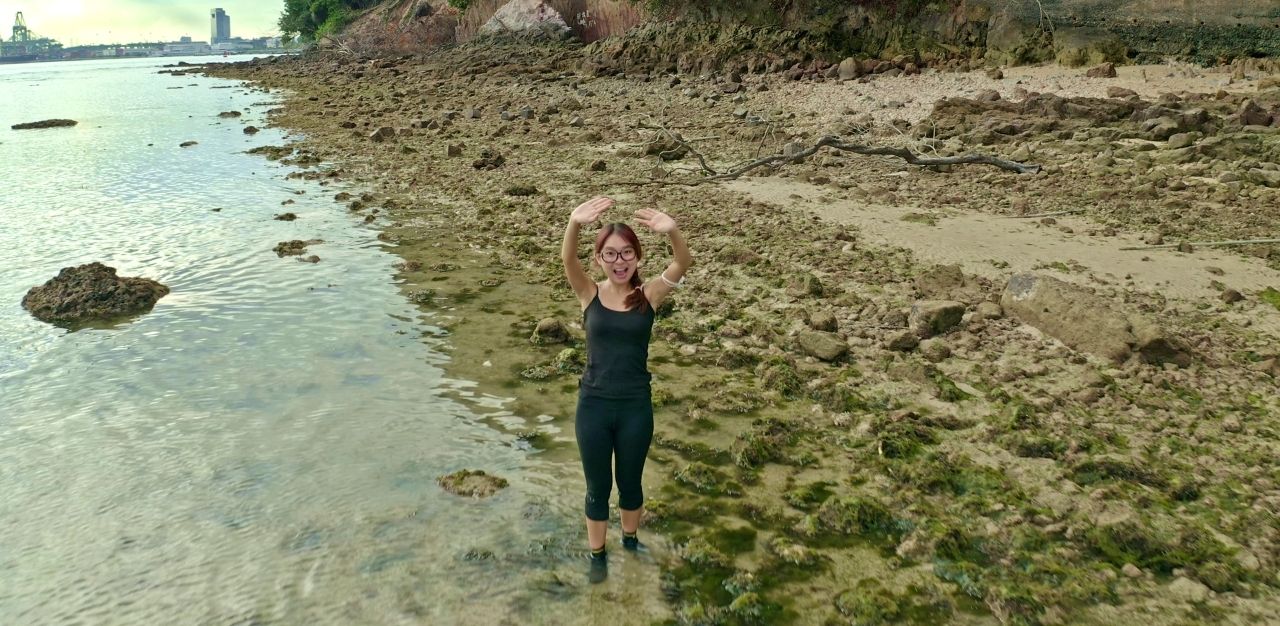
THG: What do you enjoy most about being a host?
MJ: I don’t feel any difference. I know for a lot of people, when they’re on camera, there’s a pressure. During my presentation, I’ll get nervous, but after a while I don’t realise the camera is there at all, or that someone is watching me. I’ll just go on, even when there’s a live audience. As a host, I’m just being myself. And then it translates into – will people actually enjoy who I am as a person? Whatever you see on camera is really me – I’m just this annoying, noisy girl that likes to spew science knowledge around. It was very heartening to see that people actually enjoyed this side of me. That is pretty much genuine and one hundred percent real.
THG: What are your thoughts on the recent incidents of people digging up marine creatures?
MJ: [I felt] waves of frustration and sadness, just like most of the people in the marine community. I was really sad because it’s always a sad sight to see, especially when you see it yourself. There were so many people. And I understand how people are feeling, especially when you try to explain it to them nicely, and they don’t listen to you. That was the initial wave of emotions.
I just didn’t sleep the entire night because I had a morning shoot the next day. [Raye and I] didn’t sleep at all because I was quite disturbed by it. After a while I talked to some people about it, [asking] why is this the case? What can we do about it? The more I did, I realised how complicated things really are, [and] why we cannot implement a blanket ban on all invertebrates. What if I kill a cockroach? Do I go to jail for it?
Some places are not controlled, other authorities control. And because of that, they might have a different goal [for] what they want to do, and protecting wildlife might just not be their priority. The more I dug, the more I realised things are much more complicated, and it’s not very fair to just bash on one person or one organisation entirely. So instead of sulking and being upset about everything, Raye and I just decided to do a post about it.
Throughout the whole night, we didn’t sleep; at 3-4am we were just thinking about what to do, what to draw, how to portray these emotions well, and what we wanted to convey to the general audience about what’s really going on and how complicated things are. We stayed up the whole night to do a post, and it was very well received, I think. It opened up a lot of perspective for different people who didn’t know what was really going on.
Ultimately, education is key. That’s what we feel, and that’s what we ended off with – that we have to inculcate this empathy and love for nature in people. And that’s where people will really learn to respect and love the wildlife we have. The following weekend, people [came] here, to Changi Beach. NParks are here patrolling, along with a lot of marine volunteers to educate and reach out to as many people as we can, and teach them about the wildlife we have, and hopefully they will learn to respect and love it.
It’s a good sign if people are interested in nature. If we are able to love and respect nature as it is, then nature can continue to live for generations to come, and more people can get to enjoy [it], and [it] will be here for a long time. It will be very sad if you don’t get to see them anymore, ten years [on].
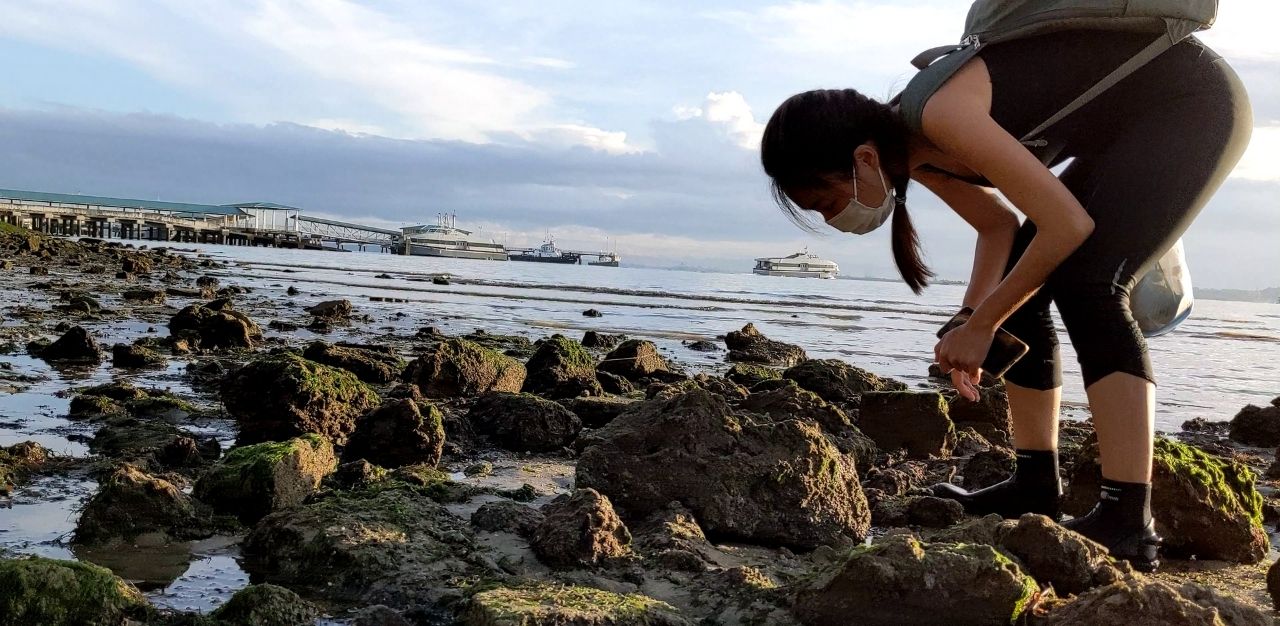
THG: Tell me about some of your most memorable shoots.
MJ: It has to be the video that went a bit viral – the day that we collaborated with Crab Lovers Farm. We were still a really small channel then. So we got thinking about an interesting thing that we can cover [relating to] science or nature in Singapore. And the owner of Crab Lovers Farm was really nice. He invited us to his farm, and I got to experience all sorts of farming, which the public can’t really go to – it was just for me! (laughs) He just did it so openly and willingly, welcoming us to his big area and sharing what he does with us. When the video went viral, it actually helped his business – his business exploded, his likes increased by a lot. And then he went on Zaobao, newspapers, and he was really busy. I was really happy, I felt that my channel could actually help businesses. We were not that big to begin with, but he opened his arms to welcome us, and we did the same too. It benefits both of us, so we got a bit more followers, but his business grew as well.
We also did a video with Speaker of Parliament Mr Tan Chuan Jin. It was really exciting. When he entered parliament,I already knew him because he [had awarded] a prize to me when I was still a student. It was for the edusave awards scheme. He gave a speech when I was there. That’s someone I respect a lot. So to get to meet and shoot a video with him after a good seven to eight years [was] very exciting. [I was] very happy to have that, and show him the wildlife we have in our urbanised areas. It was really nice, I think he enjoyed it as well.
THG: How did the pandemic affect the growth of Just Keep Thinking?
MJ: I think you can see it in two ways. It’s also based on how you adapt to the situation. It affected us in that we couldn’t go out and shoot, and we couldn’t do collaborations, [because] we couldn’t visit different organisations and work with a big group of people, that’s a big no-no.
But in another way, [it was in trying] to think of more ideas that we came up with new video styles. We have a style we haven’t done for a long time, [which we call] SSRP, sama sama roti prata, where we talk about differences between two commonly mistaken animals, [who may seem] similar but [are] different. We started doing less nature and wildlife [content], [and] focused more about the other sciences that didn’t necessarily have to be filmed outdoors. And you can do it at home.
We ramped up on our animations and infographics. And we had the Covid-19 mask post that went super viral, which is the most viral [post] up to date. That happened because of the pandemic. So I think it really depends on how one adapts to the situation and how they grab the opportunity to see if they can use it to their advantage or not.
THG: What are some of the biggest misconceptions people have about wildlife in Singapore?
MJ: One of the biggest misconceptions is that we do not have any wildlife. That’s the biggest one, I feel. That was what dawned upon me when I first saw animals on St. John’s Island. That is also why we started doing this channel, to showcase the wildlife we have. And I feel that it’s important because we cannot really try to protect something we don’t even know exists. So you know that, once we know that there’s this area teeming with a lot of intertidal creatures, we should protect it.
We also did terrestrial adventures where we looked for land animals. This is really important, to get the spark going in people, so that they will get to learn more. What we like to do is to have that spark [that will] hopefully ignite interest in some of the people who watch our content, and spur [them] on, to [nurture a] love and that respect for wildlife, [and] hopefully cultivate some people who will be going into this full-time to protect our nature and wildlife in the future.
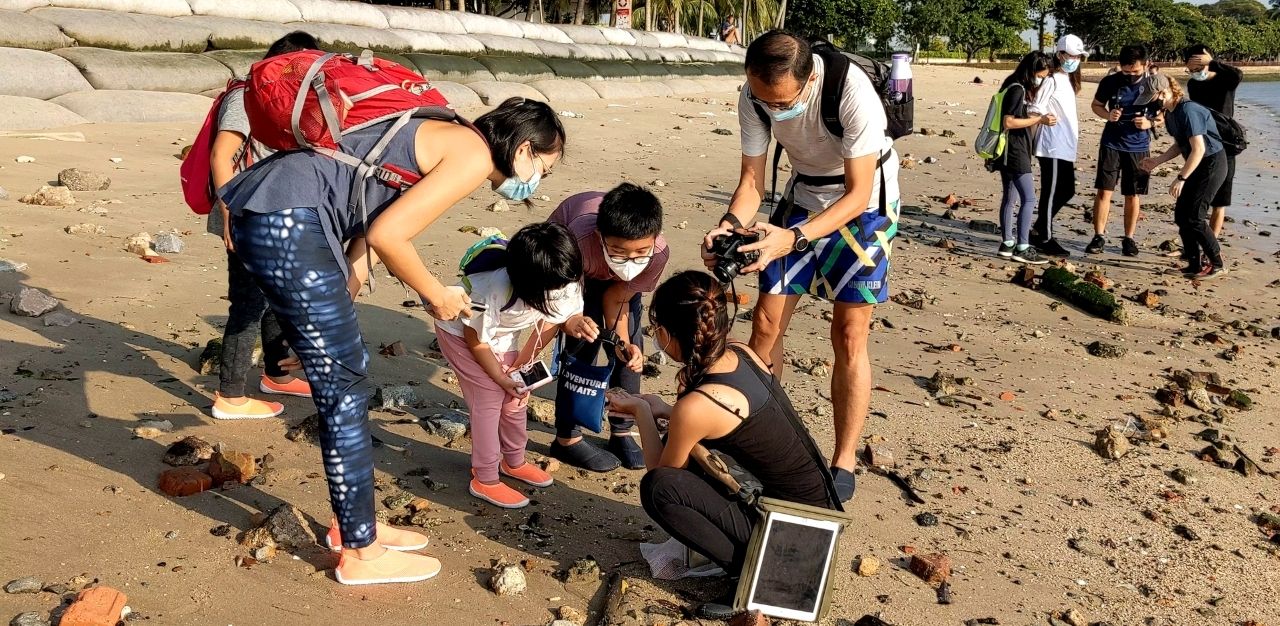
THG: What motivates you to keep pressing on?
MJ: The positive reactions that we receive from a lot of people. I didn’t know how likable our channel is, [and] how it really touched people’s lives.
There was this boy whose mum contacted us through Instagram. He was filming his own kind of episode. And then the mum sent it to us and [said] ‘He was inspired by your videos, and he’s learning to be like you!’ It was really touching. Also random incidents like when we shot a video of beach cleanup, and accidentally found a post on Reddit about a guy who watched our videos [and said that] it inspired him to go for a beach cleanup. That was also super inspiring. I mean it was touching to know that our video can actually inspire people. Whether it was a one-off incident or not, every person, every difference we make in one person’s life is still worth it, and still worth celebrating. That keeps us going all the time. Every single happy comment, every single thank you, or like even kids heading outdoors just because they watch our videos. It really makes us really happy, and we appreciate it a lot.
THG: Are there any challenges you’ve faced in juggling your roles as a teacher with your work with Just Keep Thinking?
MJ: Of course time is limited, [and] my social life has been reduced. But we don’t see Just Keep Thinking as work work, you know, it’s a bit different. So you know, I have my daytime job which I enjoy a lot, but afterwards, during my off days, or after I finish that part of my job, then I get to do something that I love.
It can be stressful at times, it’s not always beds of roses, but I know I’m doing something out of my passion. We are doing something out of our passion and the outcome is always worth the experience, whether it’s good or bad. Yeah. At the end of the day if all else fails, it’s a good run! The experience that we had creating this, the ups and downs, who we collaborate with, and memories we have – it will last a lifetime, so no regrets. No ragrets.
Join the conversations on TheHomeGround Asia’s Facebook and Instagram, and get the latest updates via Telegram.



